Your baby is now officially an embryo and is about the size of a poppy seed.
Please visit www.nhs.uk/conditions/pregnancy-and-baby/4-weeks-pregnant/ for more information.
Local Maternity and Neonatal System
View navigation
After the birth
There are many different ways your body reacts after birth, and some of this is dependent on the experience you had and how your baby was born. If you have any questions please ask your midwife or obstetrician.
You may have lost blood during the operation and hence may feel tired and weaker than usual. As your body makes new blood to replace that lost this will improve. Your midwife or obstetrician will advise if you need to eat a special diet or go on iron tablets, or occasionally you may need a transfusion after the birth. If this is the case this will be discussed in detail with you.
Your caesarean scar will need to heal; it may be stitched or stapled and may have a dressing on it, but you will be advised how to keep it clean. If it becomes red and inflamed (infected) please let your midwife or obstetrician know. There are also things you should not do whilst your scar is healing; you should not be driving or lifting anything heavy, and if possible, your baby can be given to you rather than you picking them up for the first few days at least.
You will need to rest to recuperate from the surgery, so get as much help as you can in this period.
This link to the NHS website gives advice on recovering after a caesarean section.
If you gave birth vaginally you may have 'torn' as you gave birth. There are different degrees of tears, and whilst some can be stitched up and will heal quickly, others will have bigger tears that can affect the perineum and anus. You may require surgery for this and need to be given advice on how to look after this wound.
You may also require physiotherapy after birth to give you exercises to support your pelvic floor and prevent problems with incontinence later. If you have any questions about this ask your midwife and they will be able to refer you through to the right professionals.
You will continue to bleed after you have given birth; as though you are having a heavy period. This may continue for several weeks after birth, but let your midwife or GP know if it continues beyond this.
Whether you are breastfeeding or not your milk will start to come in after a few days. This can be very uncomfortable, so please speak with your midwife if you are not intending to breastfeed and they can support you through this. For more information about the different types of infant feeding see here.
Information on exercises for your pelvic floor and abdominal muscles are on this website as linked.

Your baby is now officially an embryo and is about the size of a poppy seed.
Please visit www.nhs.uk/conditions/pregnancy-and-baby/4-weeks-pregnant/ for more information.
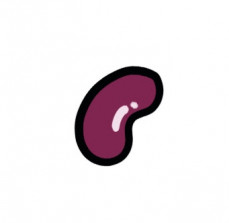
Your baby is now the size of a kidney bean and weighs 1g.
Please visit www.nhs.uk/conditions/pregnancy-and-baby/8-weeks-pregnant/ for more information.
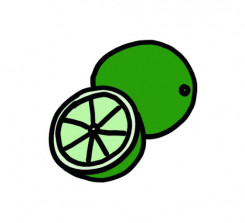
Welcome to the second trimester!
Your baby is about the size of a small lime and weighs approximately 14g.
You have hopefully seen your midwife for your 'booking in' appointment, if you have not yet seen a midwife please make an appointment quickly, so you can have all of your choices about screening tests explained and offered to you.
Please visit www.nhs.uk/conditions/pregnancy-and-baby/12-weeks-pregnant/ for more information. You can also link to the 'Pregnancy Journey' area here.
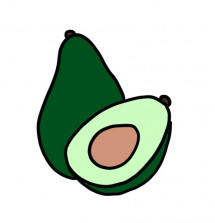
Your baby is about the size of an avocado and weighs approximately 100g.
Please visit www.nhs.uk/conditions/pregnancy-and-baby/16-weeks-pregnant/ for more information.

Your baby has grown in length and is now the length of a small banana and weighs approximately 300g. Around this time you will be offered your '20 week' scan, also known as the 'anatomy' or 'anomaly' scan.Click here for more information about screening.
This is a also a good time to talk and sing to your bump as your baby can now hear sounds. This is great way for you and your partner/family to bond with your baby.
Please visit www.nhs.uk/conditions/pregnancy-and-baby/20-weeks-pregnant/ for more information.
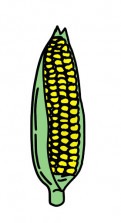
Your baby has grown again to the approximate length of an ear of sweetcorn and weighs about 600g.
Please visit www.nhs.uk/conditions/pregnancy-and-baby/24-weeks-pregnant/ for more information.
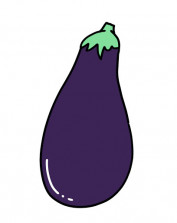
Welcome to the third trimester!
Your baby is now approximately the weight of an aubergine; about 1kg and approximately 37cm in length.
Please visit www.nhs.uk/conditions/pregnancy-and-baby/28-weeks-pregnant/ for more information.
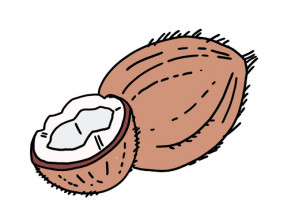
Your baby now weighs approximately the same as a coconut; around 1.5kg.
Please visit www.nhs.uk/conditions/pregnancy-and-baby/32-weeks-pregnant/ for more information.
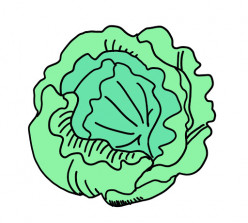
Your baby is now around the same size as a lettuce, approximately 47cm long and weighs around 2.6kg.
Please visit www.nhs.uk/conditions/pregnancy-and-baby/36-weeks-pregnant/ for more information.

Your baby is now the weight of a small watermelon which is approximately 3.3kg and around 50cm in length.
Please visit www.nhs.uk/conditions/pregnancy-and-baby/40-weeks-pregnant/ for more information.